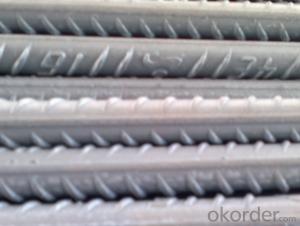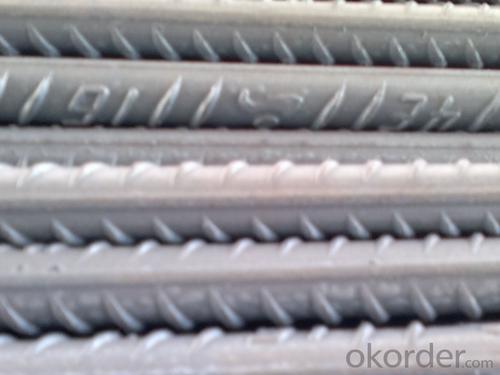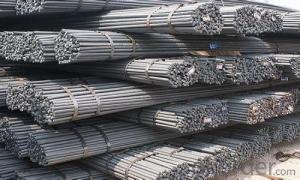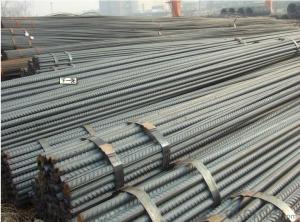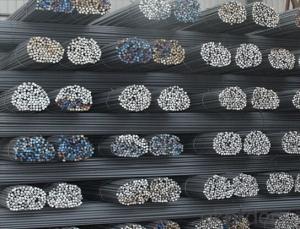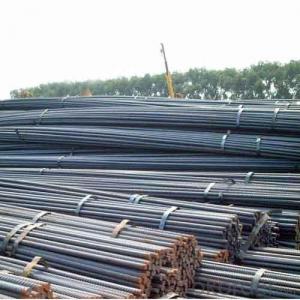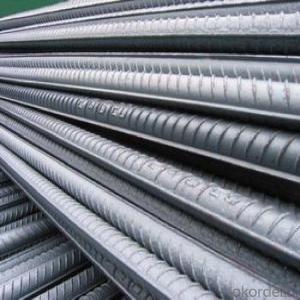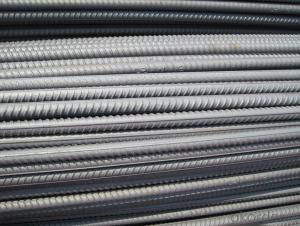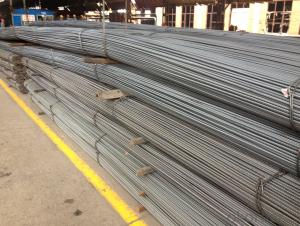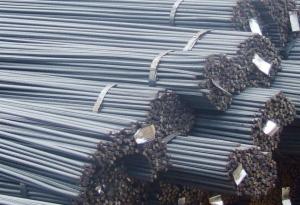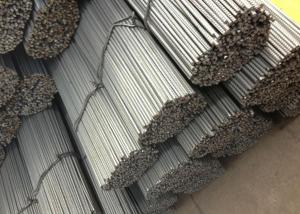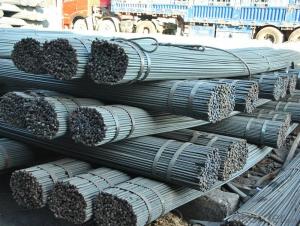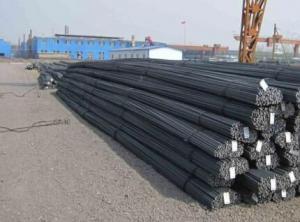Ribbed Reinforcing Deformed Steel Bar-BS4449:1997
- Loading Port:
- Tianjin
- Payment Terms:
- TT OR LC
- Min Order Qty:
- 28 m.t.
- Supply Capability:
- 30000 m.t./month
OKorder Service Pledge
OKorder Financial Service
You Might Also Like
Specifications
Ribbed Reinforcing Deformed Steel Bar-BS4449:1997
Size: from 8 to 32mm
Grade: HRB400, BIS460B, ASTMGR60,BS4449
Ribbed Reinforcing Deformed Steel Bar-BS4449:1997
Grade: HRB335 HRB400 HRB500 HPB235 ASTM A615 Gr.40 Gr.60 Gr.75 BS449B 460B 500B
SD345 SD390 SD490 SD235 SD295
Standard: ASTM JIS GB DIN
Diameter: 8mm-32mm
Length: 6m 9m 12m
Application: construction material, building material
Port of Loading: Tianjin
Delivery Time: 25 days after confirmng your order
Packing: in bundles
Ribbed Reinforcing Deformed Steel Bar-BS4449:1997
| D | THEORETICAL WEIGHT | D | THEORETICAL WEIGHT | D | THEORETICAL WEIGHT |
| /mm | (kg/m) | /mm | (kg/m) | /mm | (kg/m) |
| 8 | 0.395 | 18 | 2 | 32 | 6.31 |
| 10 | 0.617 | 20 | 2.47 | 36 | 7.99 |
| 12 | 0.888 | 22 | 2.98 | 40 | 9.87 |
| 14 | 1.21 | 25 | 3.85 | 50 | 15.42 |
| 16 | 1.58 | 28 | 4.83 |
Ribbed Reinforcing Deformed Steel Bar-BS4449:1997
| Grade | Technical data of the original chemical composition(%) | |||||
| C | Mn | Si | S | P | B | |
| HRB335 | ≤0.25 | ≤1.60 | ≤0.80 | ≤0.045 | ≤0.045 | >0.00008 |
| Physics capability | ||||||
| Yield Strength(N/cm2) | Tensile Strength(N/cm2) | Elongation (%) | ||||
| ≥335 | ≥490 | ≥16 | ||||
Ribbed Reinforcing Deformed Steel Bar-BS4449:1997
| Grade | Technical data of the original chemical composition(%) | |||||
| C | Mn | Si | S | P | V | |
| HRB400 | ≤0.25 | ≤1.60 | ≤0.80 | ≤0.045 | ≤0.045 | >0.00008 |
| Physics capability | ||||||
| Yield Strength(N/cm2) | Tensile Strength(N/cm2) | Elongation (%) | ||||
| ≥400 | ≥570 | ≥14 | ||||
Ribbed Reinforcing Deformed Steel Bar-BS4449:1997
Grade: HRB335 HRB400 HRB500 HPB235 ASTM A615 Gr.40 Gr.60 Gr.75 BS449B 460B 500B
SD345 SD390 SD490 SD235 SD295
Standard: ASTM JIS GB DIN
Diameter: 8mm-32mm
Length: 6m 9m 12m
Application: construction material, building material
Port of Loading: Tianjin
Delivery Time: 25 days after confirmng your order
Packing: in bundles
Ribbed Reinforcing Deformed Steel Bar-BS4449:1997
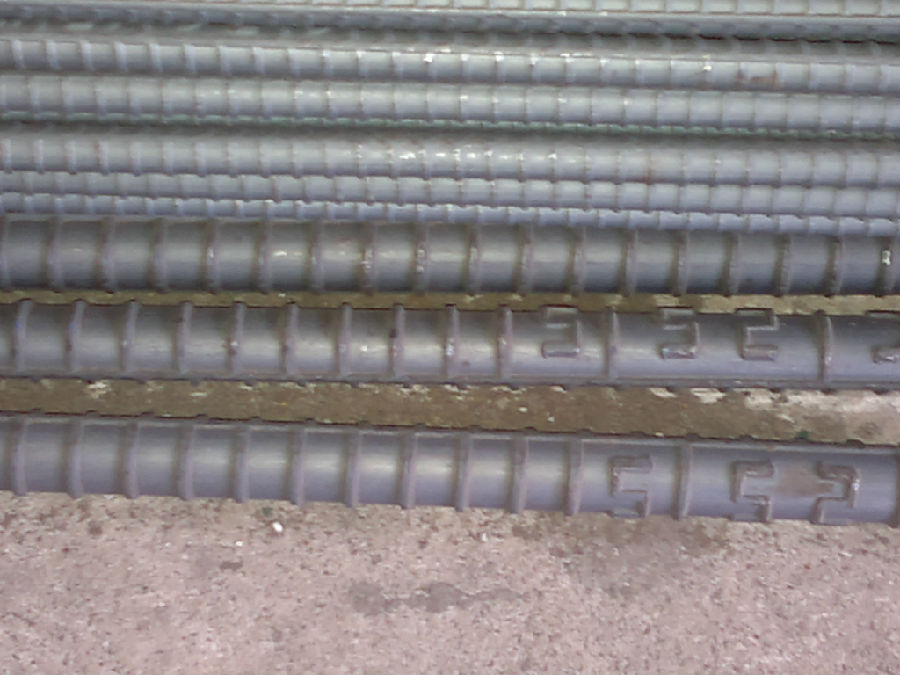
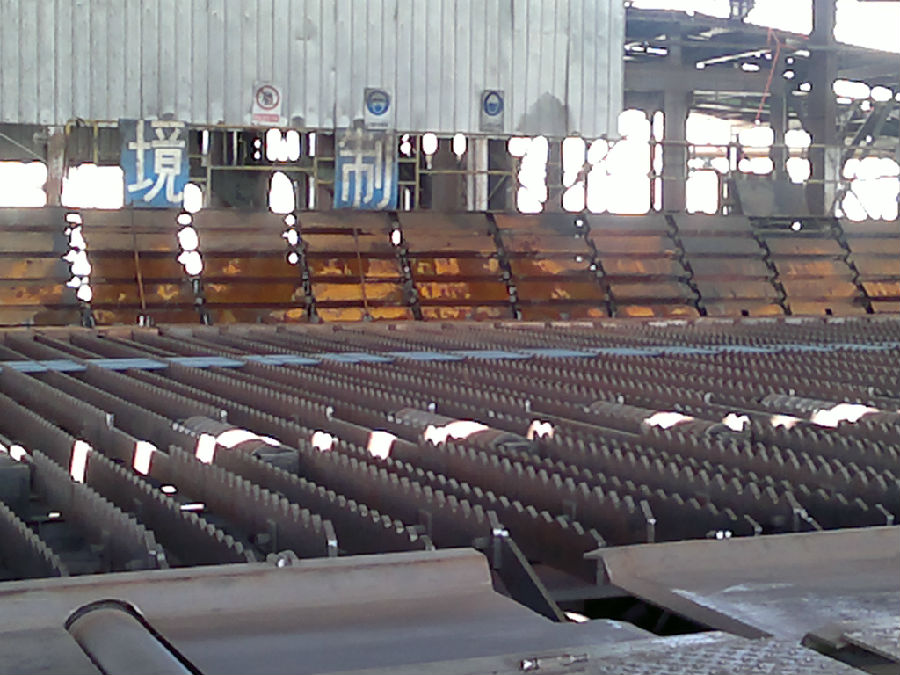
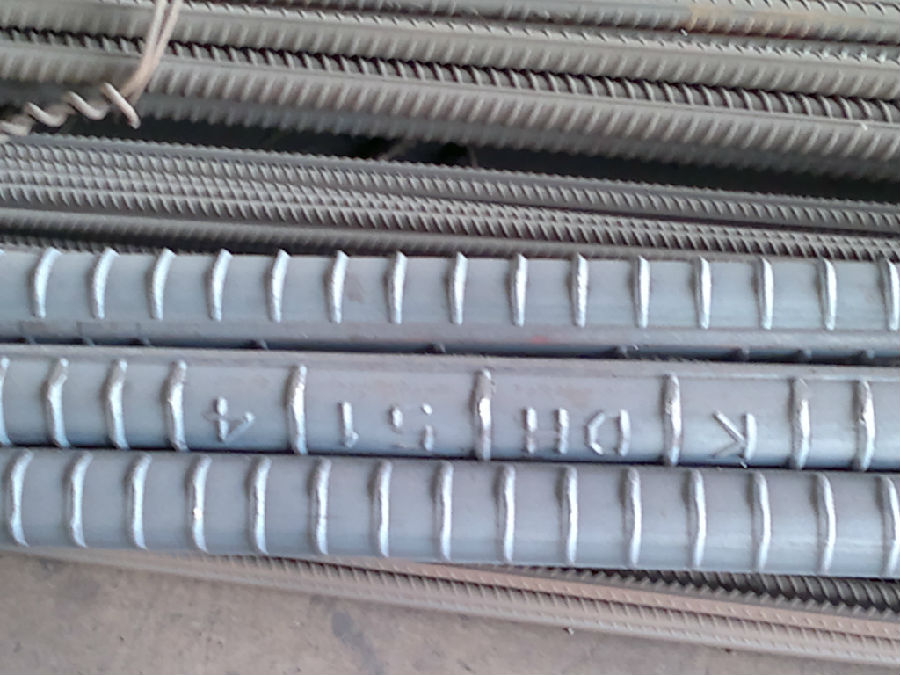
- Q: What are the different grades of steel rebars available?
- There are several different grades of steel rebars available in the market, each with specific characteristics and applications. The most commonly used grades include: 1. Grade 40: This is a low-strength rebar, suitable for general construction purposes where high tensile strength is not required. It is commonly used in residential buildings, sidewalks, and driveways. 2. Grade 60: This is a medium-strength rebar, offering higher tensile strength than Grade 40. It is widely used in commercial buildings, bridges, and infrastructure projects. Grade 60 rebar provides excellent reinforcement for heavy loads and structural stability. 3. Grade 75: This is a high-strength rebar, often used in challenging construction projects that require exceptional tensile strength. It is commonly utilized in high-rise buildings, parking garages, and industrial structures to ensure superior reinforcement and structural integrity. 4. Grade 80 and above: These are ultra-high-strength rebars designed for specialized applications where extreme load-bearing capacity is necessary. They are commonly used in heavy-duty infrastructure projects, such as dams, tunnels, and nuclear power plants, where the demand for strength is significantly higher. The choice of steel rebar grade depends on factors such as the specific construction project, load-bearing requirements, and environmental conditions. Engineers and architects evaluate these factors to determine the most suitable grade of steel rebar for a particular application, ensuring optimal performance and structural durability.
- Q: What is the role of steel rebars in basement wall construction?
- The role of steel rebars in basement wall construction is to provide reinforcement and structural support to the concrete wall. Steel rebars, also known as reinforcing bars, are typically made of carbon steel and are placed in the concrete before it is poured. The rebars are strategically positioned within the concrete to add strength and stability to the wall. They help to distribute the load and forces that the wall may encounter, such as soil pressure or lateral forces from the surrounding environment. This reinforcement prevents the wall from cracking or collapsing under these external pressures, ensuring its durability and structural integrity. In addition to reinforcing the basement wall, steel rebars also help to control shrinkage and expansion of the concrete due to temperature changes. By providing a framework within the wall, the rebars help to limit the formation of cracks and maintain the overall stability of the structure. Overall, the presence of steel rebars in basement wall construction significantly enhances the strength and durability of the concrete wall. They play a crucial role in ensuring the integrity of the structure and protecting it from potential damage or failure.
- Q: Can steel rebars be used in the construction of data centers and server rooms?
- Yes, steel rebars can be used in the construction of data centers and server rooms. Steel rebars are commonly used in reinforced concrete structures to provide strength and stability. In the construction of data centers and server rooms, where the infrastructure needs to support heavy equipment and withstand high loads, steel rebars can be used to reinforce the concrete floors, walls, and columns, ensuring the structural integrity of the facility.
- Q: What are the guidelines for the proper spacing of steel rebars in slabs?
- The guidelines for proper spacing of steel rebars in slabs typically vary depending on the specific design and structural requirements. However, some general guidelines recommend a minimum spacing of rebars to be at least three times the diameter of the longitudinal bars. Additionally, transverse reinforcement should be placed at regular intervals, typically between 12 to 18 inches, to ensure adequate reinforcement throughout the slab. It is crucial to consult with a structural engineer or refer to local building codes and standards to determine the specific spacing requirements for a given project.
- Q: How do steel rebars contribute to the structural integrity of a building during earthquakes?
- Steel rebars contribute to the structural integrity of a building during earthquakes by providing reinforcement and stability. They are embedded within the concrete to increase its tensile strength, which helps in resisting the lateral forces and vibrations caused by seismic activity. The rebars distribute the stress and load across the structure, preventing excessive bending or cracking. This reinforcement enhances the building's ability to withstand the destructive forces of an earthquake, reducing the risk of collapse and ensuring the overall safety and durability of the structure.
- Q: How are steel rebars protected during transportation and shipping?
- Steel rebars are typically protected during transportation and shipping through various methods such as bundling, wrapping, and using protective coatings. They are commonly bundled together using steel strapping or wire ties to prevent them from shifting or falling apart during transit. Additionally, rebars are often wrapped in plastic or paper to shield them from moisture, dust, and other external elements. Furthermore, some rebars may be coated with corrosion-resistant materials or painted to enhance their durability and prevent rusting. These protective measures ensure that steel rebars reach their destination in good condition, ready for use in construction projects.
- Q: What is the maximum allowable stress for steel rebars?
- The maximum allowable stress for steel rebars is typically determined by design codes and standards, which vary depending on the specific application and country. However, in general, the maximum allowable stress for steel rebars is usually around 0.6 times the yield strength of the steel.
- Q: Can steel rebars be bent on site?
- Yes, steel rebars can be bent on site.
- Q: What is the average lifespan of steel rebars in concrete structures?
- The average lifespan of steel rebars in concrete structures can vary depending on several factors. Generally, if the concrete is of good quality and properly maintained, the rebars can last for several decades. However, exposure to environmental conditions such as moisture, chemicals, and temperature fluctuations can accelerate the corrosion process, leading to a shorter lifespan. In areas with high humidity or proximity to saltwater, rebars may corrode more quickly. Additionally, poor construction practices, such as inadequate concrete cover or improper placement of rebars, can also impact their lifespan. Regular maintenance and inspections can help identify any potential issues and extend the lifespan of steel rebars in concrete structures.
- Q: Can steel rebars be used in combination with other reinforcement materials?
- Combining steel rebars with other reinforcement materials is a common practice in construction projects. Steel rebars provide tensile strength and improve overall structural integrity in reinforced concrete structures. However, additional reinforcement materials may be needed in certain cases to meet design requirements or overcome unique construction challenges. For example, in areas with high seismic activity, it is important to prioritize flexibility and ductility. In these situations, steel rebars can be combined with materials like fiber-reinforced polymer (FRP) bars or carbon fiber-reinforced polymer (CFRP) strips. These materials offer increased strength and flexibility, enhancing the structure's ability to withstand seismic forces. Furthermore, when corrosion is a concern, steel rebars can be used alongside corrosion-resistant materials such as stainless steel rebars or epoxy-coated rebars. These materials form a protective barrier, preventing direct contact between the steel rebars and moisture or corrosive agents. Moreover, in specialized applications like precast concrete elements or composite structures, steel rebars can be used in conjunction with other reinforcement materials like prestressed tendons or structural fibers. This combination allows for load redistribution and ensures optimal structural performance. In conclusion, combining steel rebars with other reinforcement materials is an effective way to meet specific construction requirements, improve structural performance, and address challenges related to seismic activity, corrosion, or specialized applications.
Send your message to us
Ribbed Reinforcing Deformed Steel Bar-BS4449:1997
- Loading Port:
- Tianjin
- Payment Terms:
- TT OR LC
- Min Order Qty:
- 28 m.t.
- Supply Capability:
- 30000 m.t./month
OKorder Service Pledge
OKorder Financial Service
Similar products
Hot products
Hot Searches
Related keywords
